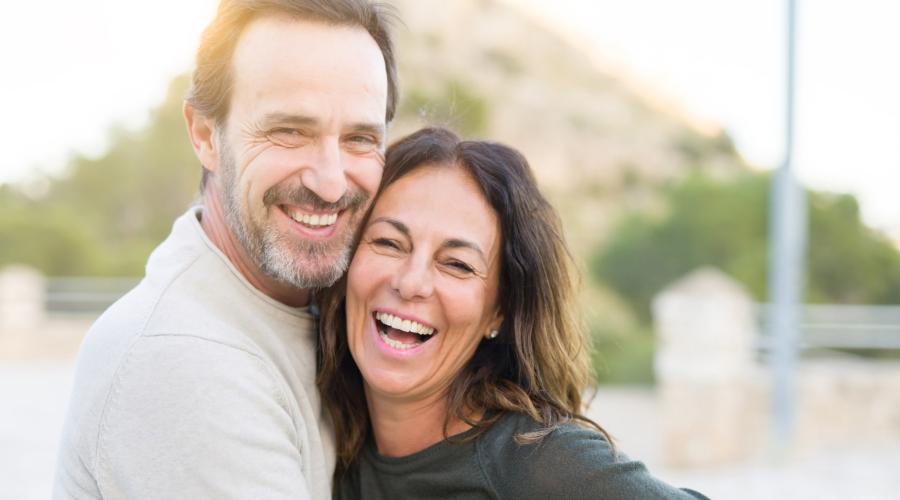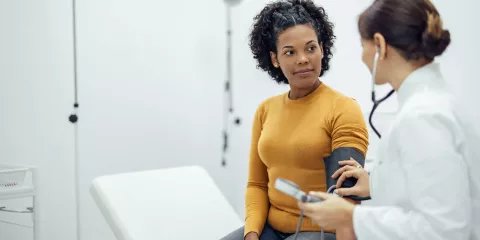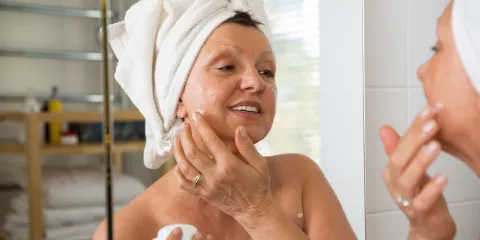
Sexual health is important for every adult regardless of age, but there are special considerations to take when you get older. Your body changes quite a bit as you age, and these physical and mental changes can affect how, and in what ways, you can be intimate. You might need to switch up the ways you engage in sexual activity based on the new limitations of your body, but there are still some tried and true sexual health pointers to keep in mind.
Related: Dating in Your Golden Years
Here are a few things to know regarding your sexual health as an older adult.
Understand the Physical Changes of Your Body
The changes your body goes through as you age aren’t limited to what you can see. According to research from the National Institute of Health, our respective genitalia can go through unexpected physical changes as we age. Older adults with penises can sometimes experience erectile dysfunction (or ED) as a result of aging, but seniors with vaginas can also experience changes, too. As we age, sometimes the vagina may shorten and narrow, and the vagina as a whole can start to produce less lubrication, making sex more painful if you aren’t accounting for these changes. Outside of your genitals, your body might also become a bit more fragile. If you don’t take care of your own physical needs, you are more likely to break bones, strain muscles, or otherwise hurt yourself during sexual intercourse.
Be Considerate of Mental Limitations
As we age, the state of our mental health can also undergo changes, and it is important to take conditions like dementia into account when you’re planning to engage in physical intercourse with another senior. No matter what the state of your mental health or that of your partner, you need to take care that your sexual activities together are fully consensual, possibly even during each session of intercourse. The last thing you want during sex is for you or your partner to become confused, lost, or scared of what is happening between the two of you. Intimacy is still fully possible (and encouraged!) for consenting elderly adults, but it might require more care at every step of the process.
Keep Your Health History in Mind Before Getting Physical
Another important thing to keep in mind when having sexual intercourse as a senior is your own heart health history. If you have had a stroke or a heart attack, there are new physical limitations you’ll need to take into account before getting physical with your partner. If you’ve had a heart attack, you might be afraid that intense physical activity could cause another heart attack. Narrower arteries can make blood flow less efficient, making it more difficult to get aroused, but most sex should not be enough to cause a heart attack on its own. Of course, if you’re concerned, please consult your doctor before engaging in physical activity. If you’ve had a stroke, you might face some paralysis or limitation of movement, and if you don’t account for these limitations, you could injure yourself. If you have diabetes, it is more likely that you’ll suffer from yeast infections, which could dampen your enjoyment of sexual intercourse or cause some discomfort. Regardless of your conditions, as a senior, it is more important than ever to take your medical history into account before having sex.
Related: Drop Your Cholesterol to Raise Your (Ahem)
Remember to Stay Safe
As always, you’ll want to practice safe sex precautions. While pregnancy might be off the table at your age, it is still important to use protection when engaging in sexual intercourse, and to get tested for STIs regularly. Using a condom or a female condom when having sex as a senior may seem ludicrous, but some STIs, like HIV/AIDS, can be seriously detrimental to seniors’ overall health. Sex should be a fun, pleasurable activity, not a source of fear or stress. Using protection while having sex decreases the likelihood of contracting STIs.
Don’t Be Afraid to Live Authentically
Sexual orientation and gender identity are important at every age, not just when you’re young. Some older adults find it difficult to come out in their later years, especially if they do not feel safe to do so in their current living situation. However, if you are an older gay, lesbian, bisexual, transgender, or otherwise queer senior, there are plenty of resources available to you. Most cities have a SAGE chapter you can join, which provides advocacy and other services for LGBTQ+ elders. There are also plenty of resources at your local LGBT center. It’s also important to be open and honest about your sexual orientation when talking with your physicians, so that any treatment or care regimen they prescribe accurately fits your lifestyle.
These are just a few tips for maintaining a healthy sex life as a senior. If you have any specific concerns regarding your own physical or mental limitations when it comes to having sex, please consult your physician.












